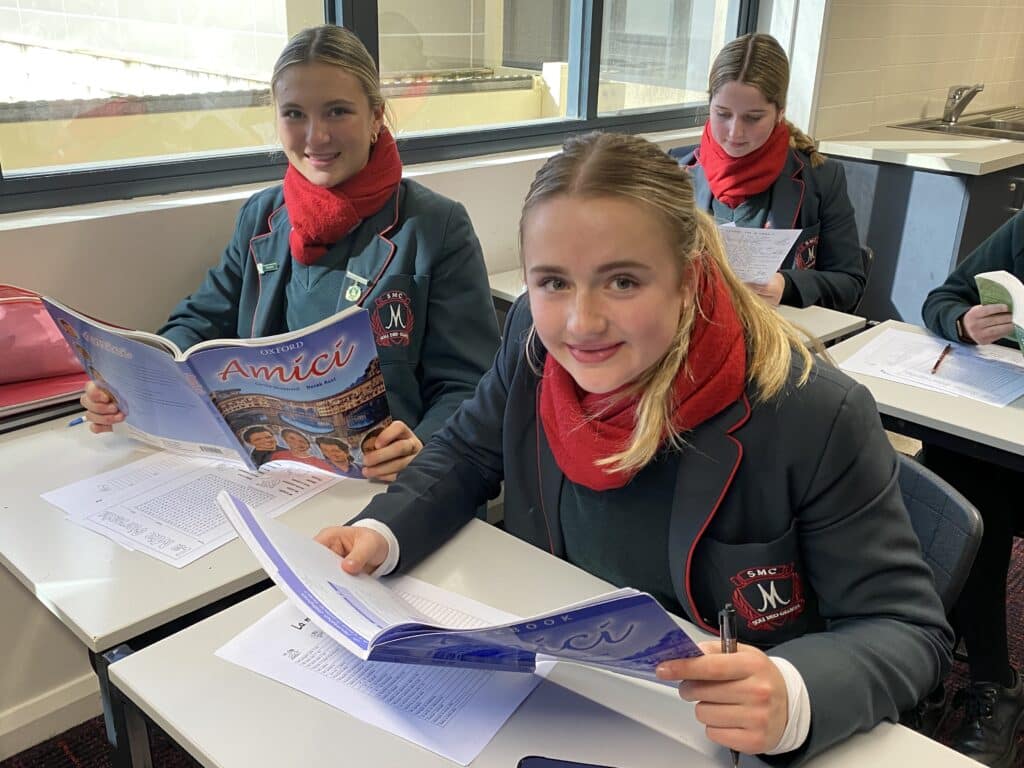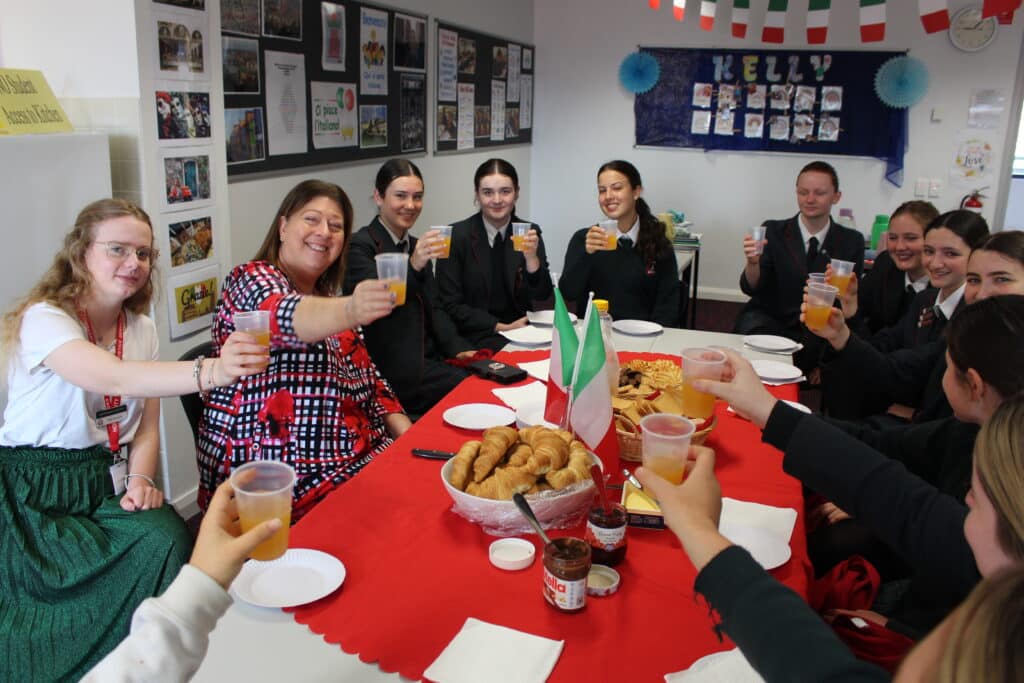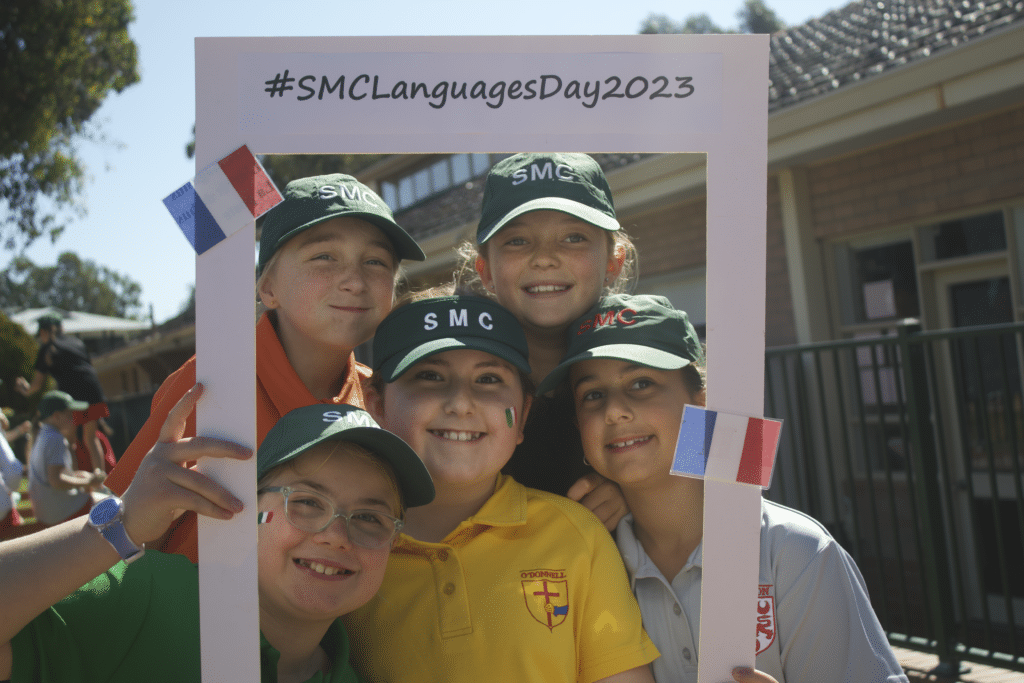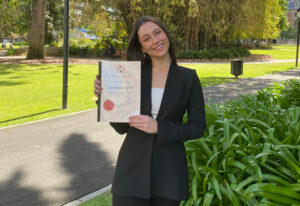Bonjour to a World of Benefits: The Advantages of Learning a Second Language

In the contemporary globalised landscape, learning a second language has not only become increasingly accessible but also significantly more advantageous than ever. It enhances communication skills, offers cognitive benefits, enriches one’s cultural experiences, and fosters stronger social connections.
We recently had the opportunity to chat with Connie Quattrini, our Head of Languages, to discuss the significance of learning a second language in the 21st century. She delves into the myriad of opportunities available, offers valuable advice on sustaining motivation throughout the learning journey and discusses the programs offered at Santa Maria.
What are some of the benefits to learning a second language?
I have often heard people ask ‘Why learn another language when everyone speaks English?’ While this may be true, knowing another language never goes to waste. Languages is about seeing the world from a different point of view and learning about other cultures, which in turn allows opportunity for cultural immersion and a passion to develop. It is also about having a better understanding of the English language, allowing it to become a life-long learning desire, developing a skill for the future and most importantly it is about communicating. Research has also shown that there is a plethora of cognitive benefits to learning another language.

How have you witnessed language proficiency opening up new opportunities, whether in work, travel or in social settings?
There are many opportunities for us to communicate in another language locally or while we are overseas. With Italian and French, there are many migrants and tourists who live here and so the language can be heard and spoken on a daily basis at local cafés, restaurants or wherever. Speaking another language while out with friends can be fun – because you never know who you might meet! There are always occasions in our society to use words like ‘ciao’ and ‘bonjour’ even if only with friends. As teachers, we have witnessed many students over the years going on exchange to France and Italy, coming back and excelling in their language studies. This experience drives many to continue with their studies and then find work with an international company, taking up au pair work with families allowing them not only to work in France and Italy, but also to travel and continue their love affair with the language and its people. Some have also continued this passion by becoming language teachers.

Can you share some of your insights on how to stay motivated and overcome any challenges that may arise when learning a second language?
Many people hope to become fluent in a language overnight. However, to learn a language requires persistence and dedication. Fluency is possible, it can happen and will happen, but we need to pace ourselves and set goals. Given the opportunity, we need to set aside some time each day to learn new words and concepts, grammar rules, verbs and we should practise with friends. We can also watch films with subtitles, listen to foreign music and learn new words and expressions. We also need to be prepared to make mistakes. By making mistakes we learn. Trust me, I know! I have made many in my time! One day, we will wake up and it will all make sense! I say this, because it is what happened to me when I was growing up and learning the intricacies of the language. It was hard, but eventually I got there, and I have never looked back. Past students have often wished that they had continued their language studies and no student has ever regretted studying a language.
For students who may be starting to learn a second language, what advice or strategies would you recommend making the process more enjoyable and effective?
Believe in yourself and know that you can do it! Take baby steps! Spend ten minutes each day going over work done in class and practise with class mates. Do not be afraid to make mistakes! You will not remember everything automatically but with time you will. Ask your teachers questions when you are not sure and have a go! Be creative and organise your work in a way that works for you! Record yourself and test yourself – with practice it can only get better!

Can you provide an overview of the learning programs and opportunities that Santa Maria offers students studying a second language?
At Santa Maria, we offer French and Italian to students from Years 5-12. Languages are compulsory from Years 5-8 and during this time students are provided with many one-on-one opportunities. The programs include a wide variety of topics that students would find useful and engaging if they were to travel to France or Italy. Every year at the College we celebrate Languages Day with a variety of cultural activities and food that students thoroughly enjoy. We also have assistants who help with our classes and are invaluable with their expertise.
Our senior students participate in language afternoons with other schools where they use their language skills and always come away with a great sense of achievement.
Exchange programs are run by various organisations and we encourage students to participate either by hosting a student or living the experience themselves in another country. A cultural and study tour is also offered to students who are passionate about the language they are learning and would like to see first-hand the many cities and monuments talked about in class and try the local food. Overall, learning a language is an experience not to be missed!
Grazie Mille, Connie, for your valuable insight!

Uplifting the Unvoiced: Caitlyn Goldney’s (2013) Inspiring Advocacy
Caitlyn Goldney (2013) is a passionate advocate dedicated to giving back to the community through her legal savoir faire.

Combating The Attention Span Crisis In Our Students – Jennifer Oaten
It is no secret that attention spans have been steadily declining, especially among younger generations growing up immersed in digital technology. The average person’s attention span when using a digital device has plummeted from around two and a half minutes back in 2004 to just 47 seconds on average today – a dramatic 66% decrease over the past two decades.

Weekly Wrap Up: Term 2, Week 2, 2024
Week 2 has come to an end! This Weekly Wrap Up features highlights from Scuba Diving Club, the Sisterhood Series, and Boarding ANZAC Service.
- Collaboration, Curiosity, Featured, Initiative, Resilience
Author: Santa Maria College
Santa Maria College is a vibrant girls school with a growing local presence and reputation. Our Mission is to educate young Mercy women who act with courage and compassion to enrich our world. Santa Maria College is located in Attadale in Western Australia, 16 km from the Perth CBD. We offer a Catholic education for girls in Years 5 – 12 and have 1300 students, including 152 boarders.






